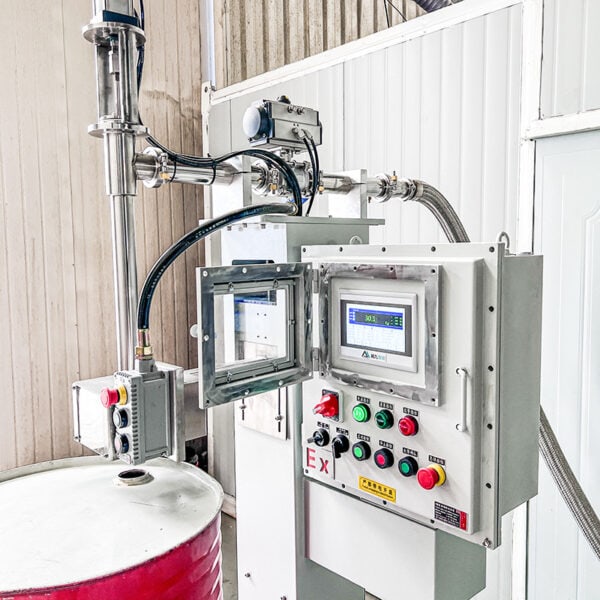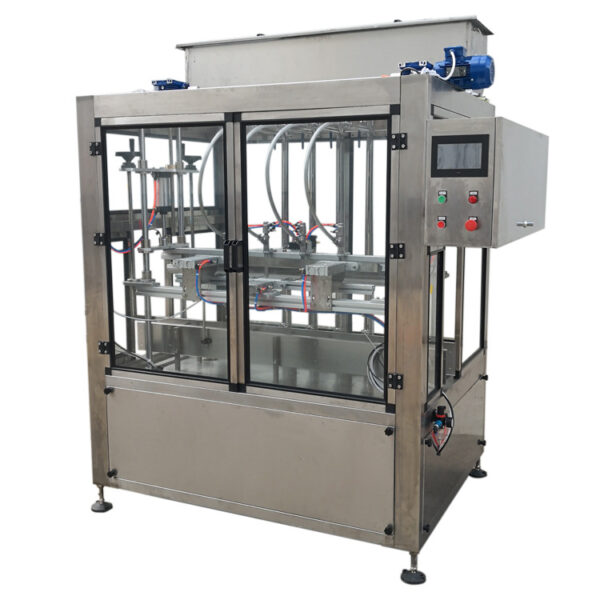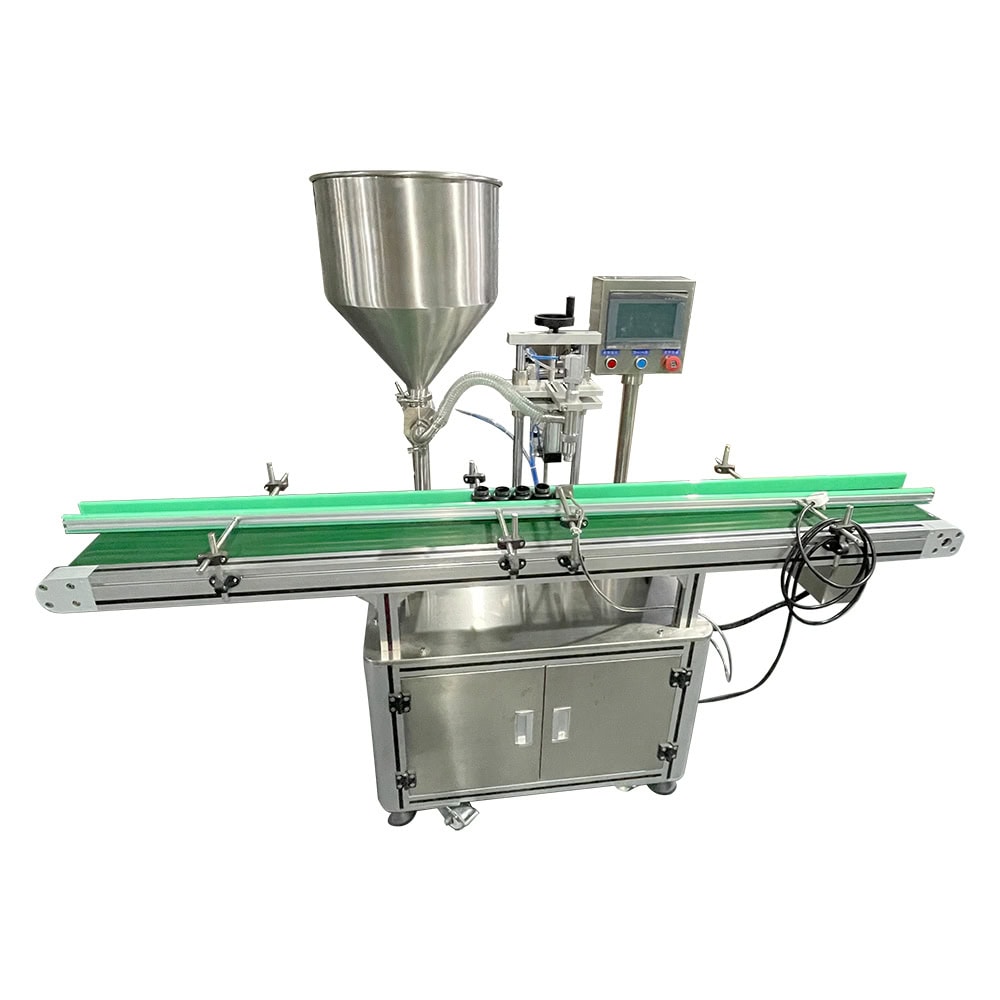There are a lot of industries using oil filling machines because they fix the problem of manually filling containers with oil, which wastes a bunch of product.
An oil filling machine is automated equipment used to fill various types of oil, such as edible oil, lubricants, or motor oil, into containers. It improves efficiency and accuracy in packaging while maintaining product quality.
Oil filling machines are a game changer for filling oil into containers. Here’s how they work and why you need one.
Types of Oil Filling Machines
Oil filling machines come in various types, such as gravity, piston, pump, and overflow fillers. Each type serves a different purpose and is selected based on the product’s viscosity and container size. Gravity fillers utilize the natural force of gravity to fill free-flowing oils, making them ideal for low-viscosity liquids such as edible oils. On the other hand, piston fillers are better suited for more viscous products like motor oils and lubricants.
The choice of machine type impacts production efficiency. For instance, piston fillers, known for their precision, use a piston mechanism to dispense a measured quantity of liquid into containers, ensuring accuracy. Overflow fillers are excellent for aesthetic consistency in bottles, ensuring that every container looks uniformly filled.
Working Mechanism of Oil Filling Machines
Oil filling machines operate through an automated process involving stages such as container feeding, filling, capping, and sometimes labeling. These machines are integrated with sensors and programmable logic controllers (PLC) to regulate the amount of oil dispensed, ensuring that each container is filled accurately.
The filling nozzles in most machines can be adjusted to accommodate different container sizes. This flexibility allows operators to handle a variety of products on a single machine. Machines can be equipped with volumetric, weight-based, or level-based filling mechanisms depending on the desired level of precision. For example, volumetric fillers are highly effective when accurate product measurement is essential.

Importance of Oil Filling Machines in Various Industries
Oil filling machines are critical to several industries, from food processing to automotive. In the food industry, for example, these machines are essential for filling cooking oils into bottles or cans. Maintaining hygiene and precision in the filling process is crucial for ensuring consumer safety and meeting regulatory standards.
In industries dealing with lubricants, precision in the filling process helps reduce waste and costs, making the use of an oil filling machine highly valuable. The consistency and accuracy of these machines also allow for uniform packaging, which is vital in maintaining product quality.
Key Components of Oil Filling Machines
The main components of an oil filling machine include the filling head, conveyor belt, PLC control system, and nozzle system. The filling head is responsible for dispensing the oil into containers with great precision, while the conveyor belt ensures a smooth flow of containers through the machine. The PLC system controls the entire process, providing consistency in filling, capping, and labeling.
Nozzles, which play a critical role in ensuring proper filling, can be adjusted to accommodate containers of various sizes and shapes. Safety features like automatic shutdowns in case of errors protect both the product and the operator, reducing potential operational risks.
Applications of Oil Filling Machines
Oil filling machines are widely used in industries that require the packaging of various oils. In the food industry, for instance, these machines fill bottles of edible oils such as olive and sunflower oil. The machines also handle non-food products, such as motor oils, lubricants, and other industrial liquids, making them versatile.
In addition to oil filling, some machines are integrated with packaging and labeling components, making them part of a larger, more comprehensive packaging system. For example, a Flag Labeling Machine can be combined with oil filling machines to label the containers as they move along the production line.

Benefits of Using Oil Filling Machines
One of the key benefits of using oil filling machines is the increased efficiency they bring to the production line. These machines can fill hundreds or even thousands of bottles per hour, drastically reducing the time and labor required in manual filling processes. This, in turn, leads to higher productivity and lower operational costs.
Another significant advantage is the accuracy provided by these machines. By automating the process, companies ensure that each container receives the exact amount of oil, reducing product waste and ensuring consistency in packaging. This precision is particularly important in industries where product quality and quantity are closely regulated.
Factors to Consider When Choosing an Oil Filling Machine
When selecting an oil filling machine, businesses need to consider factors like the type of oil being filled, the production speed required, and the container specifications. For instance, if you are dealing with thick oils such as lubricants, a piston filler might be the best option due to its ability to handle high-viscosity liquids.
Another consideration is the level of automation needed. Some machines are fully automated, while others require some manual intervention. The choice between these options depends on the scale of production and the specific needs of the business.
Maintenance and Troubleshooting of Oil Filling Machines
Proper maintenance is essential to ensure that oil filling machines continue to function smoothly. Regular cleaning of nozzles, sensors, and conveyor belts can prevent clogs and ensure that the machine operates without interruptions. Additionally, the machine’s PLC system should be checked regularly to ensure that it is calibrated correctly.
Common issues with oil filling machines include nozzle blockages and inconsistent filling volumes. These problems can often be resolved through routine maintenance checks or by recalibrating the machine. Proper care of the machine can help prevent costly downtime and extend the machine’s lifespan.
Innovations in Oil Filling Machines
The oil filling industry continues to benefit from innovations in technology. Today’s oil filling machines are more efficient than ever, featuring touch-screen controls, remote monitoring, and IoT (Internet of Things) capabilities. These features allow for predictive maintenance and minimize downtime, leading to increased productivity.
Some machines even integrate bottle unscramblers and capping functions, further automating the packaging process. These technological advancements provide businesses with greater flexibility and control over their production lines.
Conclusion
Oil filling machines are essential in various industries, automating the process of packaging oils with high precision and efficiency. By choosing the right machine, businesses can enhance their productivity, reduce operational costs, and ensure product quality and consistency.










